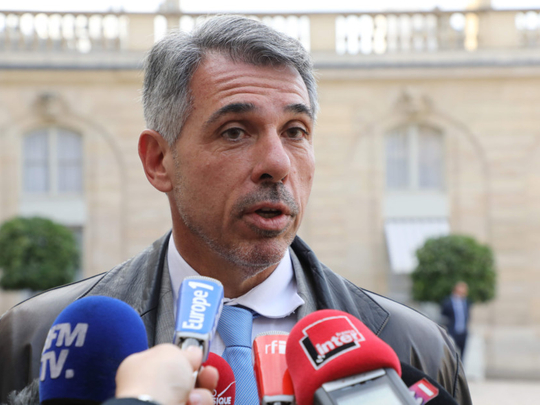
British politicians and diplomats have been famed down the ages for their negotiating skills. From Robert Walpole to Harold Wilson, British leaders were renowned for knowing how to broker a deal. Today, however, the British government is starting to trash that reputation as it moves from being a deal-maker to a deal-breaker.
As a German, I might not have approved of all of Britain’s objectives, but I nevertheless watched the United Kingdom’s negotiating triumphs with a sort of admiration. Now I look on in alarm at the unfolding catastrophe threatening to engulf the Brexit talks.
Bluffing is a common negotiating technique, which may explain British Prime Minister Theresa May’s remarkable conclusion that “no deal is better than a bad deal”. But have no doubt: No matter how catchy May’s slogan may sound, no deal is the bad deal! And while it may be bad for the European Union (EU), it will be even worse for the United Kingdom.
A British departure without an agreement will certainly be painful for the rest of the bloc, but it will not be fatal. A single market still containing 27 member-states and with trade agreements around the world can handle the departure of one large country. Prosecco and BMWs may be popular in Britain but they are, after all, big sellers worldwide. But with neither a withdrawal agreement nor a transitional period, there would not be so much as a feather to soften the British economy’s hard landing. Even Brexit can’t change the simple facts that 27 is bigger than one and 450 million citizens are more than 65 million.
And with less than 18 months left, the UK is nowhere near prepared for a doomsday scenario, given the thousands of extra customs officials, regulators and additional systems that will be needed if the country leaves the EU with no agreement.
In the European parliament, it has been made clear that it will not approve any advance in the negotiations towards a future EU-UK relationship until the foundations for this bridge are laid: A solution over citizens’ rights, the border between Ireland and Northern Ireland, and the settlement of the UK’s financial obligations. Without an agreement, a transitional period will not be granted. And we get to vote on this.
These guidelines didn’t come out of the blue, nor are they meant as revenge or punishment for a departing country. It seems clear that we have not yet resolved these issues and therefore are not yet ready to move to the second phase of negotiations, as had been expected. European leaders may indicate that they will try to be ready to do so soon if there is more movement from Britain. But even if they reach a situation where they can discuss a transitional period and a future relationship, things will not be straightforward, judging from the conflicting signals that have so far emerged from London.
Instead of being concerned about managing the Conservative party’s internal conflicts, May and her Cabinet must finally put the national interest first and agree where they are heading. The European Commission is your negotiating counterpart, not a counsellor to listen to you wrestle with doubts and divisions. How can we make sustainable progress when nobody knows if the prime minister is able to deliver, or whether her statements will be undermined by other members of her Cabinet?
Ironically, some of the UK’s greatest recent negotiating triumphs have been achieved within the EU, while playing a central and influential part. For decades, despite its moaning about Brussels, it was Britain that shaped many aspects of the community’s fate, from the creation of the single market to the size of its budget.
Now that era is over. But in order to get the agreement it wants, Britain has to decide where it’s heading. Only then can the rest of the EU know whether no deal is better than a bad deal. For Europe, that is.
— Guardian News & Media Ltd
Jens Geier is a German SPD member of the European parliament and vice-chair of the European parliament’s budget committee.










